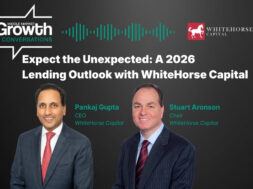Middle-Market Public Policy Roundup
Congress held hearings on the securities fraud bill and the Volcker Rule, and the NLRB chairman responded to concerns about the joint-employer standard.

In this week’s roundup, we look at a hearing on the securities fraud bill, and another on the Volcker Rule, featuring testimony from U.S. Comptroller of the Currency Joseph Otting. On the regulatory front, three senators exchanged letters with the chairman of the National Labor Relations Board about the joint-employer standard.
Capital Markets Subcommittee Hearing on Securities Fraud Bill
This week, the House Financial Services Committee held a hearing on two bills. The first, known as the Due Process Restoration Act, would allow individuals to compel the SEC to end an administrative hearing and to instead bring a civil action.
The second bill is of particular interest for the middle-market business community. Known as the Securities Fraud Act of 2018, the bill would give the federal government jurisdiction over civil securities fraud for publicly listed companies. This would prevent the enforcement of state laws that allow investigations without proof of deceitful intent by a targeted company. Notably, the bill would rein in New York’s Martin Act, which has been widely criticized for giving the state’s attorney general broad authority to bring securities fraud investigations without providing proof of intent or knowledge of wrongdoing.
House and Senate Hearings with the Comptroller of the Currency
Joseph Otting, comptroller of the currency, testified in front of both the House Financial Services Committee and the Senate Banking Committee this week. The OCC is one of five agencies with joint authority over the Volcker Rule, so the hearings provided an opportunity to gain insight into Otting’s views on potential changes to the rule.
In the Senate hearing, Otting agreed that the Volcker Rule may potentially impede liquidity in times of economic stress. Sen. Thom Tillis, R-N.C., spoke to the idea of the Federal Reserve as the only regulator of the Volcker Rule; Otting argued that both the Fed and the U.S. comptroller of the currency should have jurisdiction because the Volcker Rule affects banks and holding companies. Significantly, Committee Chairman Mike Crapo, R-Idaho, advocated for additional tailoring and clarification of the definition of covered funds, an area of the Volcker Rule that the pending rulemaking process will potentially change.
Otting shared his opinion that banks should be allowed to engage in leveraged lending if it doesn’t impair safety and soundness, and if they have the appropriate levels of capital and risk management. He also noted that regulators could better coordinate on cybersecurity guidelines.
The OCC is one of five agencies with joint authority over the Volcker Rule, so the hearings provided an opportunity to gain insight into Otting’s views on potential changes to the rule.
ON THE REGULATORY FRONT
Senators, NLRB Chairman Exchange Letters on Joint-Employer Standard Rulemaking
Sens. Elizabeth Warren, Kirsten Gillibrand, and Bernie Sanders sent a letter to the National Labor Relations Board voicing concerns that the NLRB’s planned joint-employer standard rulemaking was a means to evade ethical restrictions.
The rulemaking, which the NLRB signaled in its most recent regulatory agenda but has not yet been initiated, seeks to clarify the proper scope of the joint-employer standard.
Last week, NLRB Chairman John Ring responded to the letter, assuring the senators that an internal ethics review of the NLRB was being conducted and that the rulemaking was not intended to avoid ethical considerations. He went on to advocate for why rulemaking is an appropriate, and even superior, vehicle to bring certainty to the joint-employment standard, citing the following as evidence:
- The rules will not affect past conduct; a new joint-employer standard established through rulemaking will only apply going forward and will provide more certainty than a case-by-case adjudication of the standard.
- Through a rulemaking, the joint-employment standard can be viewed comprehensively instead of being limited to the facts of a specific case.
- The rulemaking process invites all stakeholders to provide input through a comment letter. This stands in contrast to resolving the issue through a specific case that only allows for the filing of legal briefs, which can be costly and typically requires hiring an attorney.
Chairman Ring also indicated the NLRB’s plan to release a proposed rule by this summer.
Check back each Friday for the weekly Public Policy Roundup. Is there a policy issue you’d like us to cover? Send your suggestions to MMG Editor Kathryn Mulligan at kmulligan@acg.org.

Maria Wolvin is ACG Global’s vice president and senior counsel, public policy.

Ben Marsico is ACG Global’s manager of legislative and regulatory affairs.


